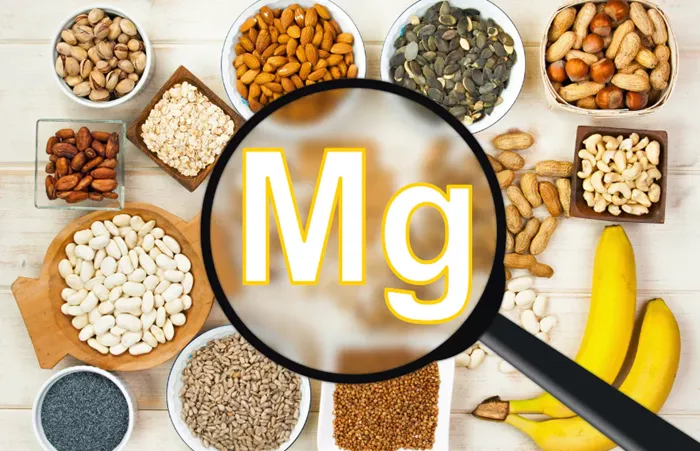Magnesium plays a vital role in over 300 bodily processes. However, many people, especially older adults and those with certain health conditions, may not get enough magnesium from their diet alone.
Here are eight simple ways to ensure you’re meeting your daily magnesium needs.
1. Eat More Nuts and Seeds
Nuts and seeds are excellent sources of magnesium. A serving of roasted almonds provides 19% of the Daily Value (DV), while pumpkin seeds offer 37% of the DV. These foods also provide healthy fats, protein, and fiber.
2. Consider Magnesium Supplements
For some, magnesium supplements may be necessary. Choose supplements like magnesium citrate or lactate, which are more easily absorbed than others like magnesium oxide. Consult your doctor for personalized advice.
3. Choose Whole Grains Over Refined
Whole grains such as brown rice and oats are rich in magnesium. In contrast, refined grains like white bread have significantly lower magnesium content. Opting for whole grains helps boost your intake.
4. Be Cautious with Zinc Supplements
High doses of zinc can interfere with magnesium absorption. Daily zinc supplements above 142 milligrams may lower magnesium levels in your body. Always talk to your doctor before starting any new supplement.
5. Add Avocados to Your Meals
Avocados are a delicious source of magnesium, providing 10% of the DV per cup. They also offer healthy fats and other important nutrients, making them a versatile addition to your diet.
6. Limit Alcohol Intake
Excessive alcohol consumption can lead to magnesium loss through urine. Reducing alcohol intake helps maintain better magnesium levels, especially for those with alcohol dependence.
7. Eat More Legumes
Legumes like beans, lentils, and peas are rich in magnesium. One cup of black beans contains 20% of the DV, while lentils offer 17%. Add them to soups, salads, or stews for a magnesium boost.
8. Manage Your Blood Sugar
Those with diabetes or insulin resistance may lose magnesium through increased urination. Managing blood sugar levels through medication and lifestyle changes can help prevent magnesium depletion.
Recommended Magnesium Intake
Adults should aim for 400-420 milligrams of magnesium daily, depending on age and gender. Pregnant or lactating women may require more.
Signs of Magnesium Deficiency
Symptoms of magnesium deficiency can include fatigue, muscle cramps, and abnormal heart rhythms. Severe deficiencies can lead to more serious issues like seizures. If you notice these signs, consult a healthcare provider.
Ensuring adequate magnesium intake is essential for your health. A diet rich in magnesium from foods like nuts, seeds, and whole grains can help you meet your daily needs. If you experience symptoms of deficiency, consult a healthcare provider for advice.
Related topics:
- What Magnesium Is Good For Anxiety?
- 11 Vegetables Rich In Magnesium To Boost Your Health
- Does Magnesium Help With Menopause Symptoms?


